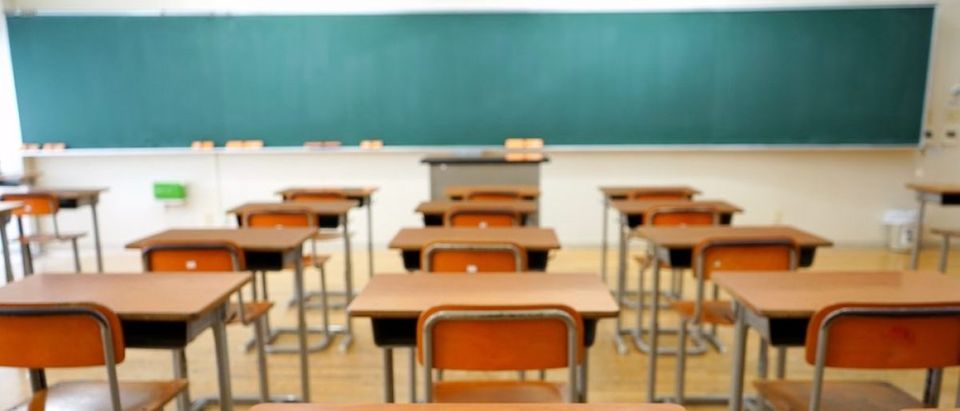Senate Democrats spent much of last week lambasting Donald Trump’s nominee to head the Department of Education calling billionaire philanthropist Betsy DeVos “unqualifed” and angrily demanding that she withdraw her name from consideration for the post.
But if DeVos’s critics were really so concerned about the plight of American schools, they might have saved their ire for the man she’s slotted to replace.
In a blistering news analysis that was largely buried within hours of being posted online, the Washington Post’s Emma Stone reported on the release of the Education Department’s final report on its multi-billion dollar program to “save” the nation’s failing public schools.
The verdict? It was a total failure.
The department’s final report found that hundreds of public schools that received as much as $2 million dollars in federal funding to boost their test scores and increase their educational attainment levels performed no better than schools that received no new funding – and in some cases, about a third, in fact, they performed even worse.
Obama’s education secretary Arne Duncan had heralded the reform program — first begun under George W. Bush, but with double the funding and a higher priority under President Obama — as a “signature” effort even more important than the department’s highly touted “Race to the Top” initiative.
But critics accused Duncan of ignoring evidence virtually from the start that the School Improvement Program (SIP) was failing. Indeed, despite mounting warning signs that appeared in its own interim evaluations, Duncan’s department — with White House concurrence — continued to plough new money into the program.
In theory the SIP allowed schools to choose among several options to qualify for special federal funding, among them: replacing their principal or half their teachers or lengthening the school day. But the department failed to closely monitor which option the schools chose or whether they fully complied with its conditions.
Even worse, under amendments to the Bush guidelines pushed by Obama and Duncan, the department no longer required schools to reach certain benchmarks in test scores or graduation rates – only to demonstrate that they were “making progress.”
Most weren’t, and as a result, billions in taxpayer dollars were wasted.
Ironically, at the time Duncan was appointed in 2009, he was widely viewed as a compromise candidate between conservative public school critics like Michelle Rhee — who has blamed teachers and their unions for blocking meaningful reform — and liberal reform advocates who believe the department should concentrate on improving the incomes and health status of students in poverty-stricken areas where most failing schools are located.
In fact, during his tenure, Duncan came under fire from conservatives and liberals alike. Conservatives disdained his efforts to impose mandatory policies on states – often without formal congressional approval — even while quietly applauding his determination to compel schools to improve.
Liberals liked Duncan’s emphasis on early childhood education and equal opportunity for minority students but felt that he was sometimes too willing to blame teachers for failing schools.
For unabashed education conservatives, DeVos is a breath of fresh air. She co-authored with her husband Michigan’s 1993 charter school law and has long championed alternatives to public education. Democrats have tried to cast doubt on the record of charter schools in Michigan, but school choice advocacy groups nationwide have applauded her nomination.
DeVos failed to win over a single Democrat over during her confirmation hearing, but key education policy influencers including former Democratic Senator Joe Lieberman (I-CT) stood by her, praising her “deep concern” for children. So did GOP senator Lamar Alexander (R-TN), a former education secretary (under George H.W. Bush) who is pushing for a comprehensive states-rights approach to education.
The biggest stumbling block to Democratic efforts to block DeVos’ confirmation may be the sheer weight of public opinion. Polls have consistently shown that a majority of Americans favor school choice. And to the chagrin of American liberals, large majorities of African Americans disgusted with the state of inner-city public schools targeted by the SIP program also want real alternatives.
The education department’s devastating final report on SIP won’t be overlooked for long.
Big Government coddling of public schools in the guise of “tough love” clearly doesn’t work. In the hands of new leadership, the report bolsters the argument that expanded aid to the private sector may be the best way to force these schools to measure up while giving inner city kids with real promise a chance to fulfill their dreams.
And Betsy DeVos, with no prior experience in a deeply troubled and dysfunctional public school system, may be just the kind of fresh-thinking leader America needs to persuasively articulate that vision.


